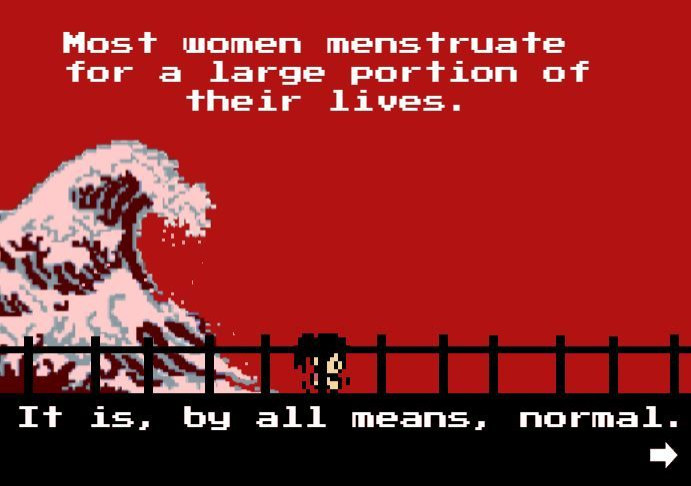Women's Periods Aren't A Stigma, They're A Video Game: 'Tampon Run' Aims To Change The Way We Talk About Menstruation

Andrea Gonzales, 16, and Sophie Houser, 17, want to change the way we talk about a woman’s period. Specifically, they want young girls and women everywhere to feel normal rather than humiliated when they have their period, and they’re hoping their video game, "Tampon Run" will help the conversation flow in a better direction.
The two teens who live in New York met at a Girls Who Code conference. GHC’s mission, as described on their website, “works to inspire, educate, and equip girls with the computing skills to purse 21st century opportunities.” Tampon Run was an idea the girls had for their final project.
“Although the concept of the video game may be strange,” the game’s opening credits read, “it’s stranger that our society has accepted and normalized guns and violence through video games, yet we still find tampons and menstruation unspeakable.”
Gonzales told the NY Daily News that, initially, as much as their teacher liked the idea, he felt he needed to run it by the heads of the program for approval. “That alone shows what a taboo it is,” she said.
Obviously, the board was, well, on board with the idea, and Tampon Run has started to see some success. The instructions for first-time users are simple. Just hit all the enemies with your tampons and don’t let them pass or confiscate them. The game is over when you run out of tampons, so stop and collect boxes along the way to build-up your stock.
Medical Daily gave the game a test run and decided it's pretty fun. It's also going to ruin our productivity for the day, but that's fine. You start off with a certain number of tampons, passing by boxes soon after. The enemies generally move by slowly, speeding up the more you get through the game.
Right now, Tampon Run can only be played online. But the girls told the Daily News they want to start working on a mobile version, as well as add to the original. They’ve received all kinds of game requests, from maxi pad shields to super-absorbent tampons.
More importantly, the girls have learned how powerful it is to code. “If you know how to code, you can build anything you can think of and then use the Internet to reach thousands of people,” Houser said.
While GHC’s mission is to inspire young women, it’s also to reach gender parity among computer specialist jobs by the year 2020. In order for this to happen, women will have to fill 700,000 computing jobs, which is 25 percent of the total 30 percent of students who continue in computer science once exposed to the field.
So, to Reshma Saujani, founder and CEO of GHC, it’s not just a program for girls like Gonzales and Houser; it’s a movement.
If you need us, we’ll be here trying to beat our high score (98, if you were curious).



























